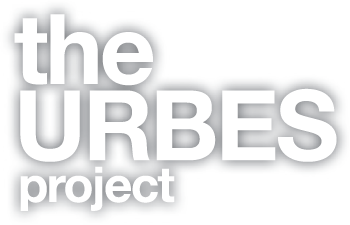About URBES
URBES is a three-year research project funded by BiodivERsA that aims to bridge the knowledge gap on the links between urbanization, ecosystem services and biodiversity. URBES runs during 2012 through 2014.
Recent literature indicates that urban biodiversity contributes to multiple ecosystem services crucial for the citizens’ well-being and urban biodiversity may also be part of decreasing the ecological footprint. Examples of important urban ecosystem services include: i) reductions in local air pollution and noise, ii) reductions of the urban heat island effect, iii) direct health benefits, e.g. presence of street trees has been found to be associated with a significantly lower prevalence of early childhood asthma, and accessibility to green areas has also been linked to reduced mortality and increase in general health, iv) key environments for enhanced public ecological knowledge and awareness of local to global sustainability challenges.
Such urban ecosystems are generated by a diverse set of environments including parks, cemeteries, watercourses, avenues, gardens and yards, verges, commons, green roofs and facades, sports fields, vacant lots, industrial sites and landfills. The management of urban ecosystems must, however, be connected to the social-ecological dynamics of the built-up parts. Further, the total dependence of cities on the surrounding landscape and its biodiversity, as well as the ever ongoing interactions between urban, peri-urban and rural are key to address the sustained generation of ecosystem services and overall urban resilience.
A key aspect of the URBES work is the outreach work as communication and training, for which we have subcontracted our partners IUCN and ICLEI.
The role of IUCN and ICLEI in the URBES project is to influence the local, regional and international policy arenas through a collaboratively developed extensive communication and capacity building programme. This will firstly focus on translating the outcomes of the project in accessible messages which will be disseminated to several audiences in Europe. Secondly, ICLEI and IUCN will present examples of ecosystem services for cities to a variety of stakeholders in Europe and build capacities in a selected group of local authorities in Europe, on the sustainable management of ecosystems services and natural resources.
About IUCN
IUCN, the International Union for Conservation of Nature, helps the world to find pragmatic solutions to our most pressing environment and development challenges. IUCN believes that increasing people’s understanding of the benefits of green spaces can help to strengthen sustainable urban development, in particular by connecting the city landscape with the ecological landscape outside the city boundaries.
IUCN considers the URBES project an excellent partnership for cities and local governments to become better informed on the value of natural capital for sustainable urban life and increasingly contribute to biodiversity conservation and improved management of ecosystems services in Europe. IUCN’s work focuses on valuing and conserving nature, ensuring effective and equitable governance of its use, and deploying nature-based solutions to global challenges in climate, food and development.
IUCN is the world’s oldest and largest global environmental organization, with more than 1,200 government and NGO members and almost 11,000 volunteer experts in some 160 countries. IUCN’s work is supported by over 1,000 staff in 45 offices and hundreds of partners in public, NGO and private sectors around the world.
www.iucn.org
About ICLEI
ICLEI - Local Governments for Sustainability is the world's leading association of cities and local governments dedicated to sustainable development. ICLEI is a powerful movement of 12 mega-cities, 100 super-cities and urban regions, 450 large cities as well as 450 small and medium-sized cities and towns in 84 countries.
ICLEI promotes local action for global sustainability and supports cities to become sustainable, resilient, resource-efficient, biodiverse, low-carbon; to build a smart infrastructure; and to develop an inclusive, green urban economy. The ultimate aim is to achieve healthy and happy communities. We have developed stable, long-term programs to support local-level sustainability and continue to develop innovative new programs to respond to issues of international concern.
www.iclei.org
Contact details
E-mail us:
Over-all project management: Professor Thomas Elmqvist and Maria Schewenius, MSc
Visiting address: Stockholm Resilience Centre, Kräftriket 9A, 106 91 Stockholm, Sweden
www.stockholmresilience.org


